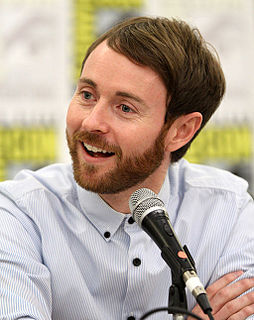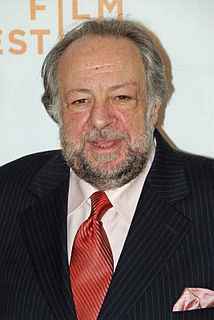A Quote by Marielle Heller
I think acting helps me as a director no matter what. There is something about being reminded about the vulnerability it takes to be an actor and what I'm really asking of actors every day when I'm on set as a director that I think it's a really good reminder.
Related Quotes
When I'm in the studio, I write the music, I play the different instruments, I produce it, I arrange it, and it's a self-indulgent exercise. It's the way I make my music. And when I'm acting, I get to leave myself behind, which is a relief. I get to collaborate with a director; I respect the director's medium and all the actors and actresses. So at the end of the day, it's about a character and it's about a director's vision. It's a really good balance for being so intense and alone in my personal process of making music.
Your actors need to trust you as a director, but normally, I think you just need to have an open communication between the actors and the director. I think the director needs to really paint his or her vision to the cast and let them know the kind of mood that he or she is making. I think that's very important.
When you think about being a director, you think about writing stories, putting the camera in interesting places and directing the actors to get your vision, but it's hard to imagine even this process... sitting here nine months later talking about the film and talking about it 20 times in one day. You don't even think about the part where you come to the set every morning and everyone's looking at you to see your mood in order to see what the day is going to be like, and the influence that you wield.
Film is such a director's medium; you're really in their hands in terms of the real storytelling. As an actor, you can give a performance moment to moment and some of your takes will be used and some of them won't. I think there are great films you can make with bad performances, and vice versa. There are all combinations of those things. It's really down to the director what happens, I think, so that's why it's really good to work with very talented, bold directors.
You can say something that can really help and actor and you can say something that can really get in the way of an actor's performance, kind of cut them off from their instincts and really get into their heads. And every actor's different. Every actor requires something different. Being an actor, for me, was the greatest training to be a writer and director.
Well, for the transition from rapper to actor, I was fortunate that director John Singleton pursued me for about two years to be in Boyz 'N the Hood. I really wasn't even thinking about acting at the time, since I was singularly focused on being the best rapper in the world. So, that was really a blessing, because I wasn't really taking him seriously.
It's true that I don't think I'd be a good director. If I were a director, I'd try to hire the best people I could and then leave them alone. I don't know much about cameras or lighting, so I'd make sure that I had a really good cameraman who understood lenses and lighting, and I say to him, "This is the scene we have to shoot and this is what I think it should be, you go do it." Same with actors. But really, very good directors who know everything do basically the same thing. They hire you and then they leave you alone.






































